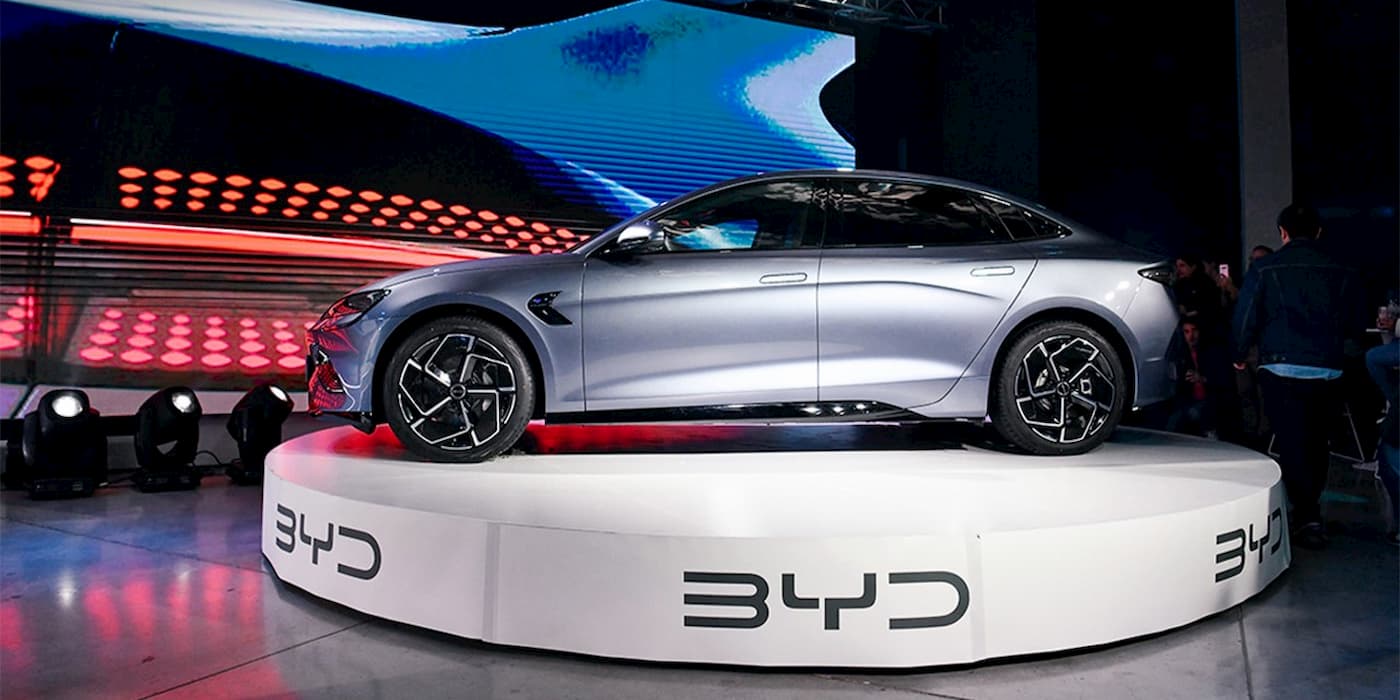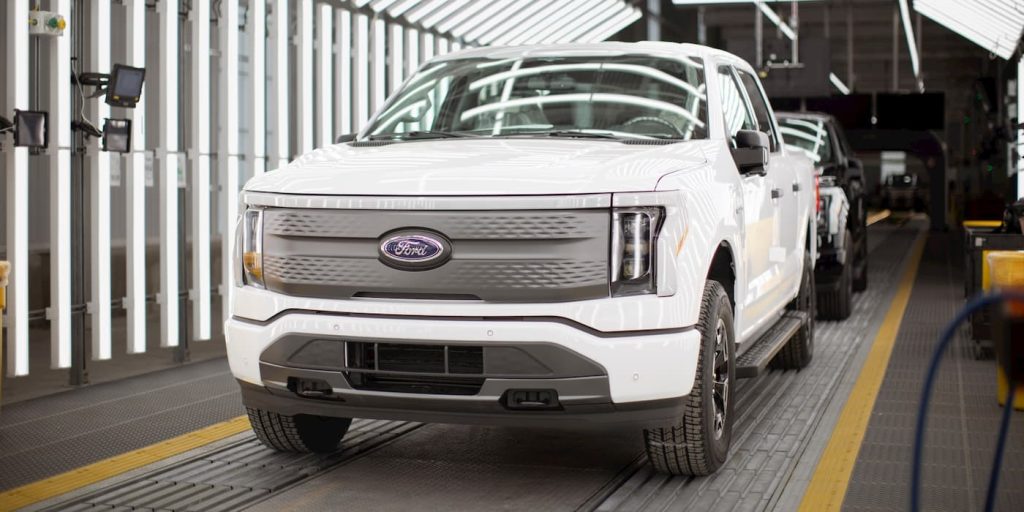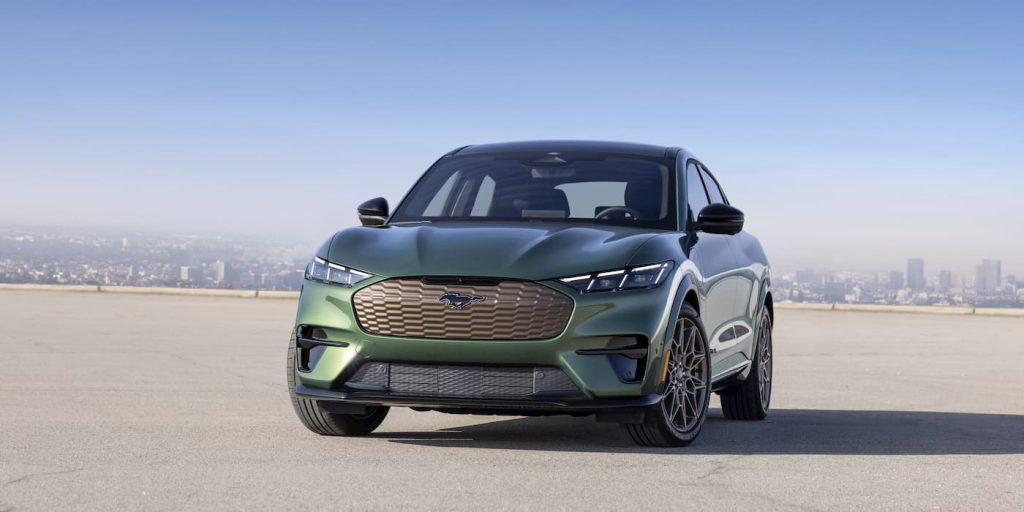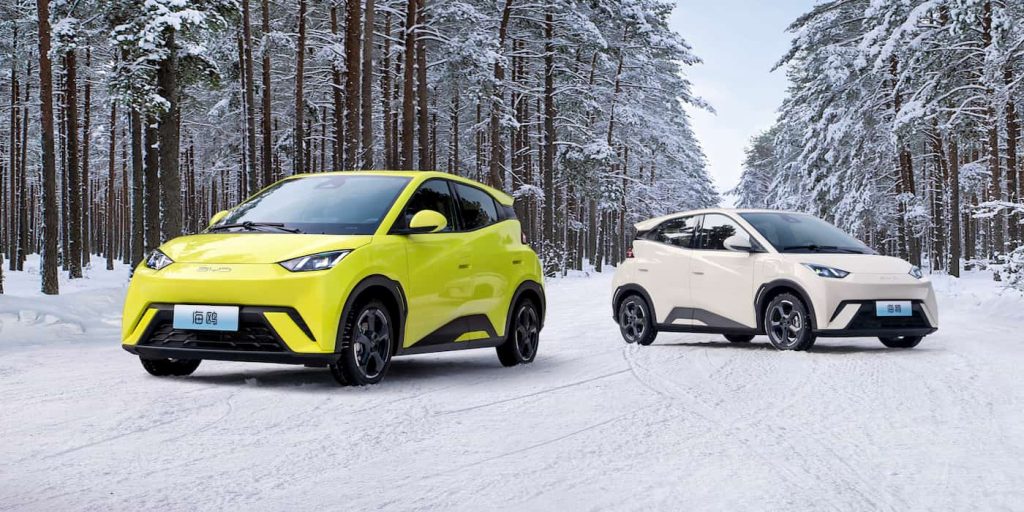
Are cheaper Chinese EVs a “colossal strategic threat” poised to enter the US market? Marin Gjaja, chief operating officer for Ford’s EV unit, believes they could put them out of business.
Ford sees cheaper Chinese EVs as a major threat
Ford better “get going on EVs or we don’t have a future as a company,” Gjaja explained Wednesday. “They are ahead of us in this technology.”
During a panel discussion on disruptive new tech in Detroit, Gjaja said (via Bloomberg), “We look at that and say, ‘That’s coming here eventually, so we’d better get fit now and better get going on EVs or we don’t have a future as a company.’”
Ford recently pulled back on EV initiatives in the US, citing “slower than expected demand.” This includes cutting F-150 Lightning production and delaying around $12 billion in spending.
Ford’s Model e EV unit lost $4.7 billion last year. The company blamed “extremely competitive pricing” and new investments for the growing losses.
Despite this, Ford’s CFO, John Lawler, said, “EVs are here to stay, customer adoption is growing, and their long-term upside is central Ford +.”

Ford’s CEO, Jim Farley, revealed the company had been “secretly” developing a low-cost EV platform last week. Farley said they had assembled a “super-talented skunk works team” to bring it to life. The team consists of “some of the best EV engineers in the world,” according to Farley.
Tesla and Chinese EVs are the ultimate competition
Farley noted that the move came as Ford’s top competition is going to be an “Affordable Tesla and the Chinese OEMs.”
Ford expects Chinese automakers to build manufacturing plants in Mexico as they look to bypass the 27.5% tariff on imports from China. Gjaja mentioned BYD Wednesday, the global EV leader, after topping Tesla in the last three months of 2023.

The head of BYD Mexico, Zhou Zou, told Nikkei yesterday that BYD is considering building a plant in the country.
According to Zou, Mexico is a critical market with major potential. BYD will use it as an export hub to the US. Mexico has attracted several recent commitments from Kia, Tesla, BMW, and Stellantis to produce EVs.
Gjaja said during the panel:
If I was sitting in China right now running a Chinese OEM, I’d be looking for land in Mexico because you’ve got a supplier base, low cost of construction, low cost of labor and the USMCA trade agreement that gives you access to the US.
He added that cheaper Chinese EVs are “Going to come here, just as the Japanese ended up here, the Koreans ended up here and the Germans ended up here. It’s a big market.”

Electrek’s Take
Gjaja has a point. While Ford is pulling back EV plans, Tesla, BYD, and other Chinese OEMs are plowing ahead with cheaper, more advanced models.
After launching just last year in Japan, BYD already accounts for 20% of the nation’s imports. And Japan is not an importing nation. The vehicles brought in are mostly luxury from BMW, Audi, and Mercedes-Benz.
BYD is expanding overseas with low-cost models like the Atto 3 (Yuan Plus in China), Dolphin, and Seal.
The Chinese automaker is launching its cheapest EV, the Dolphin Mini (Seagull), in Brazil, starting at $20,100 (99,800 reals).
Meanwhile, BYD is expanding beyond low-cost EVs. The company is releasing new luxury models like the Yangwang U7 and mid-size SUVs, including the Song L and Sea Lion 07. It’s also launching in-house smart driving ADAS tech next month, a field Ford looks to expand in.
